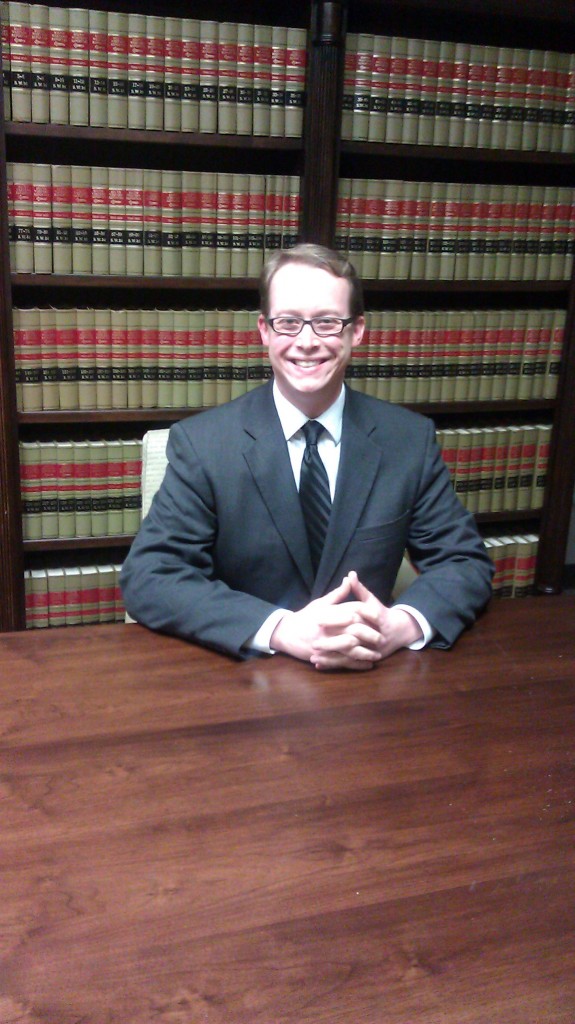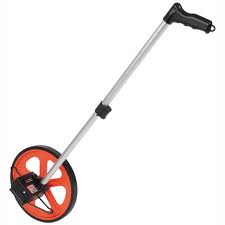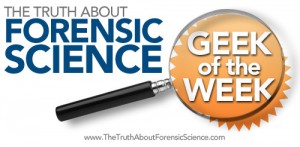The Forensic Science Geek of the Week
Please visit the www.TheTruthAboutForensicScience.com FaceBook fan page.
The week 80 “www.TheTruthAboutForensicScience.com Forensic Science Geek of the Week” honors goes to: Justin Harris, Esquire

According to our Geek, the following is offered:
Justin Harris joined Greco & Associates, P.C. in September, 2011. He is a native Houstonian, born and raised in Northwest Houston, before his family relocated to Magnolia, Texas in 1997. Justin takes pride in his hard work, attention to detail, professionalism and working very hard to fight for his clients in each and every case.
Justin began working in the legal field as a project assistant for one of the top law firms in the country in 2000. Over the next decade, Justin worked on thousands of cases. Throughout college and law school, he worked for various law firms in both Austin and Houston, each specializing in different areas of the law. After his graduation from Southwestern University in Georgetown, Texas, Justin took several years to gain legal experience before he embarked upon his lifelong dream of attending law school. He enrolled at South Texas College of Law in 2008 and fulfilled his dream in 2011 when he graduated and successfully passed the Texas bar exam, gaining admittance to the State Bar of Texas. During law school, Justin clerked for several prominent Houston criminal defense attorneys, working in Harris, Fort Bend, Montgomery, Galveston, Brazoria, Grimes, Jefferson and Liberty Counties. At each, he gained invaluable experience, being mentored by trial and appellate attorneys as well as former prosecutors. Upon graduation from law school, he received offers to join different law firms, but settled on Greco & Associates, P.C. based upon their reputation for fighting hard for their clients’ cases and after seeing their dedication to each client. After three years of working while attending law school, Justin has worked closely on hundreds of criminal cases and participated in over a dozen criminal trials.
Justin joins Greco & Associates, P.C. with nearly twelve years of legal experience at different positions within various law firms. In addition to his love of the law, Justin greatly enjoys playing the guitar, attending live music events, traveling and spending time with his family and friends.
Congratulations to our Forensic Science Geek of the Week winner!
OFFICIAL QUESTION:

- Forensic Science Geek of the Week Challenge
1. What is pictured above?
2. What is it used for?
3. Are there any known issues with respect to its forensic suitability? If so, what?
Our Geek of the Week answered:
Here’s my best guess:
1. A distance measuring wheel, sometimes also called a “rolling distance measuring wheel.”
2. It is rolled along a surface (usually the ground) from one point to another point to provide a distance that is measured by a small odometer-type gauge (typically). It is most often appropriate for measuring distances when a typical tape measure would not work. The known circumference of the wheel is used to provide a linear measurement through the “odometer”.
3. Several issues with its reliability: First, if the distance between point A to point B involves bumps, dips or inundations in the surface, the distance provided by the wheel will be affected and inaccurate. Second, depending on the quality of the particular device, the “odometer” may not be as accurate as another. Third, and most significantly, a lot of the wheel’s accuracy is dependent upon the user–if the user does not keep close, firm contact with the surface the wheel rolls over, it may allow the wheel to spin without being in contact with the surface; this will also distort the measurement provided by the wheel. Finally, and, admittedly, I am not completely sure of this one, the devices are typically unable to be calibrated. After prolonged use, the circumference of the wheel may diminish (if even slight, it will become more pronounced over longer distances). The gears in the “odometer” may slacken, etc.
[BLOGGER’S NOTE: Very honorable mention goes to Ron Moore, Esquire who answered: “This is a Roll-a-tape. Its used in larger crime scenes and especially vehicular accidents to make distance measurements for documenting the position of evidence. Its not the most accurate device for measuring distances, but then again, millimeter accuracy usually isn’t required. there are more modern methods available that use dGSP and lasers for measuring. I’ve never heard of a roll-a-tape being calibrated, nor have I heard of evidence being excluded because the roll-a-tape might have been a little off.”]
The Hall of Fame for the www.TheTruthAboutForensicScience.com Forensic Science Geek of the Week:
Week 1: Chuck Ramsay, Esquire
Week 2: Rick McIndoe, PhD
Week 3: Christine Funk, Esquire
Week 4: Stephen Daniels
Week 5: Stephen Daniels
Week 6: Richard Middlebrook, Esquire
Week 7: Christine Funk, Esquire
Week 8: Ron Moore, B.S., J.D.
Week 9: Ron Moore, B.S., J.D.
Week 10: Kelly Case, Esquire and Michael Dye, Esquire
Week 11: Brian Manchester, Esquire
Week 12: Ron Moore, B.S., J.D.
Week 13: Ron Moore, B.S., J.D.
Week 14: Josh D, Lee, Esquire
Week 15: Joshua Dale, Esquire and Steven W. Hernandez, Esquire
Week 16: Christine Funk, Esquire
Week 17: Joshua Dale, Esquire
Week 18: Glen Neeley, Esquire
Week 19: Amanda Bynum, Esquire
Week 20: Josh D. Lee, Esquire
Week 21: Glen Neeley, Esquire
Week 22: Stephen Daniels
Week 23: Ron Moore, B.S., J.D.
Week 24: Bobby Spinks
Week 25: Jon Woolsey, Esquire
Week 26: Mehul B. Anjaria
Week 27: Richard Middlebrook, Esquire
Week 28:Ron Moore, Esquire
Week 29: Ron Moore, Esquire
Week 30: C. Jeffrey Sifers, Esquire
Week 31: Ron Moore, Esquire
Week 32: Mehul B. Anjaria
Week 33: Andy Johnston
Week 34: Ralph R. Ristenbatt, III
Week 35: Brian Manchester, Esquire
Week 36: Ron Moore, Esquire
Week 37: Jeffrey Benson
Week 38: Pam King, Esquire
Week 39: Josh D. Lee, Esquire
Week 40: Robert Lantz, Ph.D.
WEEK 41: UNCLAIMED, IT COULD BE YOU!
Week 42: Steven W. Hernandez, Esquire
Week 43:Ron Moore, Esquire
Week 44: Mehul B. Anjaria
Week 45: Mehul B. Anjaria
Week 46:Ron Moore, Esquire
Week 47:Ron Moore, Esquire
Week 47:Ron Moore, Esquire
Week 48: Leslie M. Sammis, Esquire
Week 49: Ron Moore, Esquire
Week 50: Jeffery Benson
Week 51: Mehul B. Anjaria
Week 52: Ron Moore, Esquire
Week 53: Eric Ganci, Esquire
Week 54: Charles Sifers, Esquire and Tim Huey, Esquire
Week 55: Joshua Andor, Esquire
Week 56: Brian Manchester, Esquire
Week 57: Ron Moore, Esquire
Week 58: Eric Ganci, Esquire
Week 59: Ron Moore, Esquire
Week 60: Brian Manchester, Esquire
Week 61: William Herringer, Esquire
Week 62: UNCLAIMED IT COULD BE YOU!
Week 63: Ginger Moss
Week 64: Richard L. Holcomb, Esquire
Week 65: John L. Buckley, Esquire
Week 66: Jeff Sifers, Esquire
Week 67: Josh D. Lee, Esquire
Week 68: Dr. Barbara Vonderhaar, PhD.
Week 69: Christine Funk, Esquire
Week 70: Mehul B. Anjaria
Week 71: Ron Moore, Esquire
Week 72: Mehul B. Anjaria
Week 73: Josh D. Lee, Esquire
Week 74: Kim Keheley Frye, Esquire
Week 75: Mehul B. Anjaria and Peter Carini, Esquire
Week 76: Kim Keheley Frye, Esquire
Week 77: Mehul B. Anjaria
Week 78: UNCLAIMED. IT COULD BE YOU!
Week 79: UNCLAIMED. IT COULD BE YOU!
Week 8o: Justin Harris, Esquire



